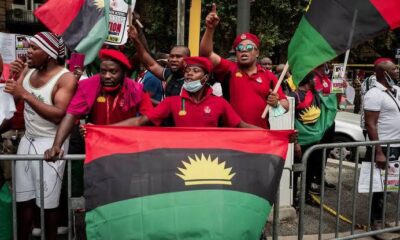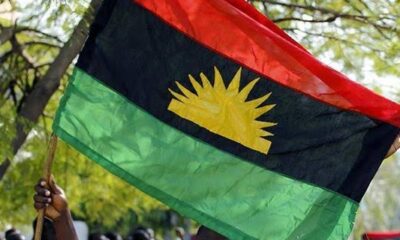Politics
BREAKING: Tinubu Under Pressure to Sack INEC Chairman Over Controversial Religious Report
The Supreme Council for Shari’ah in Nigeria (SCSN) has urged President Bola Tin to immediately reverse the appointment of Prof. Joash Ojo Amupitan as Chairman of the Independent National Electoral Commission (INEC)…

- The Supreme Council for Shari’ah in Nigeria (SCSN) has urged President Bola Tin to immediately reverse the appointment of Prof. Joash Ojo Amupitan as Chairman of the Independent National Electoral Commission (INEC), citing his past writings that allegedly portrayed Muslims in a negative light.
Tension is rising in political and religious circles following a call by the Supreme Council for Shari’ah in Nigeria (SCSN) demanding the immediate removal of the newly appointed INEC Chairman, Prof. Joash Ojo Amupitan.
In a statement issued on Friday, November 7, 2025 (16th Jumada I 1447 AH), the Council expressed “deep disappointment and grave concern” over revelations that Amupitan authored a 2020 legal brief titled “Legal Brief: Genocide in Nigeria – The Implications for the International Community.”
The document — published by the International Committee on Nigeria (ICON) — was signed under Amupitan’s law firm, Prof. Joash Ojo Amupitan (SAN) & Co., with offices in Jos and Abuja. In the brief, Amupitan reportedly described violence in parts of Northern Nigeria as “Christian genocide” and urged international intervention.

The SCSN condemned the publication, describing its contents as “provocative, distorted, and bigoted assertions” against Muslims in Northern Nigeria.
“If indeed Prof. Amupitan authored the said document, his submissions are not only unbecoming of a person of learning but dangerously inimical to the unity, peace, and stability of our country,” the Council stated.
The body said Amupitan’s analysis was “divisive, sectarian, and factually inaccurate,” insisting that insecurity in Northern and North-Central Nigeria affects both Muslims and Christians alike.
“When examined objectively, the violence in Northern Nigeria is multi-dimensional. Both Muslims and Christians have suffered immensely from extremist attacks, banditry, and communal conflicts rooted in neglect, poverty, and injustice,” the statement added.
The Council cited humanitarian reports showing that Muslims have suffered the highest casualties in ongoing conflicts.
“Credible humanitarian data indicate that over 90% of victims in conflict zones such as Borno, Zamfara, Katsina, Sokoto, Kebbi, Niger, and Yobe are Muslims,” it noted.
The SCSN also faulted Amupitan’s attempt to link modern insecurity to the 19th-century Jihad of Sheikh Uthman bn Fodio, calling it “a malicious distortion of history and a deliberate insult.”
“The Jihad of Sheikh Uthman was not a war of extermination but a reform movement built on justice and knowledge — ideals still respected across Africa today,” the Council maintained.
According to the SCSN, Amupitan’s record “raises serious questions about his neutrality and capacity to oversee free and fair elections in a multi-religious and multi-ethnic nation.”
“By his own words, Prof. Amupitan has demonstrated prejudice that calls into question his ability to conduct credible elections. The integrity of Nigeria’s electoral system cannot rest on a figure with such a divisive record,” the statement read.

The Council therefore urged President Tinubu to “immediately review and reverse” the appointment to protect the credibility of the electoral process and maintain public trust.
It also appealed to Nigerians across faiths to remain calm and united.
“We urge all Nigerians, Muslims and Christians alike, to reject divisive narratives. Our true enemies are injustice, corruption, poverty, and insecurity,” the Council said.
The Supreme Council for Shari’ah in Nigeria concluded by reaffirming its commitment to peace, unity, and fairness, stressing that leadership in sensitive institutions like INEC must reflect integrity, inclusiveness, and balance.






















